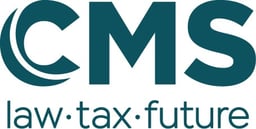
Luxembourg
Directory


Aapogee Business Services

Addleshaw Goddard

AKD

Alma LED Lux

Arendt & Medernach

Ashurst

Baker McKenzie

Bird & Bird (International) LLP

Bonn & Schmitt

Brouxel & Rabia Luxembourg Law Firm

Brucher Thieltgen & Partners

BSP

Buren

Castegnaro, member of Ius Laboris

Charles Russell Speechlys

Clifford Chance

CM Law

CMS Luxembourg

Dechert Luxembourg

Dentons

Deynecourt

DLA Piper Luxembourg

DSM Avocats à la Cour

Elvinger Hoss Prussen

Ganado SARL

Goodwin

GSK Stockmann

Herbert Smith Freehills Kramer

Hogan Lovells (Luxembourg) LLP

K&L Gates Volckrick

KLEYR GRASSO

Linari Law Firm

Linklaters

Loyens & Loeff

Luther S.A.

Maples Group

MOLITOR Avocats à la Cour SARL

Mourant

NautaDutilh

Norton Rose Fulbright

Ogier

Philippe & Partners

Simmons & Simmons in Luxembourg

Stellan Partners

Stibbe

Strelia

Tabery & Wauthier

TS&P

White & Case S.à r.l.
News & Developments
ViewPress Releases
GSK Stockmann strengthens its strategic communications with the appointment of Christine Ström
Christine Ström joined GSK Stockmann as the firm’s new Strategic Communications Manager as of 1 January 2026.
She will be responsible for managing the law firm’s corporate communications team and overseeing the strategic direction and further development of the firm’s communications activities.
Christine Ström previously worked at GSK Stockmann as PR Manager from 2019 to 2022. During this time, she played a significant role in developing and professionalising the firm’s PR and communications structures. Having held PR and marketing roles in China, the USA and Germany, most recently as Senior PR Manager at the corporate law firm GÖRG, she is now returning to GSK Stockmann with a wealth of experience and international expertise.
Christine has almost 20 years of experience in PR, marketing and strategic communications, with particular expertise in the positioning of corporate law firms, media and crisis communications, as well as the development and management of communications teams.
“We are delighted to welcome Christine Ström back to our team. Her many years of experience in strategic communications and marketing, combined with her in-depth knowledge of our firm, will be a vital asset in further developing our corporate communications,” says Dr Justus Jansen, Managing Partner at GSK Stockmann.
In appointing Christine Ström, GSK Stockmann has acquired an experienced communications expert who will further strengthen the firm’s strategic positioning.
Press contact:
GSK STOCKMANN
Christina Holl
Karl-Scharnagl-Ring 8
80539 Munich
T +49 89 288174-275
F +49 89 288 174-44
[email protected]
GSK Stockmann is a leading independent European corporate law firm. Over 250 professionals advise German and international clients at our locations in Berlin, Frankfurt/M., Hamburg, Heidelberg, Munich, Luxembourg and London. GSK is the law firm of choice for Real Estate and Financial Services. We also have deep-rooted expertise in key sectors including Funds, Capital Markets, Public, Mobility, Energy and Healthcare. For international transactions and projects, we work together with selected reputable law firms abroad. Our advice combines an economic focus with entrepreneurial foresight. That is what is behind: Your perspective.
More about us: www.gsk.de
GSK Stockmann - January 9 2026
Press Releases
GSK Stockmann advises Arsipa Group on acquisition of Mplus Managementgesellschaft
GSK Stockmann provided comprehensive legal advice to the Arsipa Group on its acquisition of Mplus Managementgesellschaft zur Optimierung von Arbeitsbedingungen mbH. This strategic transaction will strengthen Arsipa’s occupational health and safety network across Germany and represents a further milestone in the expansion of its service portfolio.
With around 85 employees and a highly regarded professional training academy, Mplus leads the market in occupational health and safety coordination services, and will expand the Arsipa Group’s local presence, particularly in the Rhineland. The current Mplus management team will remain on board to ensure the company’s continued successful development.
The integration of Mplus brings comprehensive expertise in health and safety coordination, as well as certified training and further education programmes, into the Arsipa network. This will establish common quality, safety and knowledge transfer standards and enable the group to develop its services in targeted areas such as consultancy, prevention and training.
Advisers of Arsipa at GSK Stockmann:
Robert Korndörfer (lead, Partner, Corporate), Clara López Hernando (Senior Associate, Corporate), Maik Schäffer (Associate, Corporate), Stephan Wachsmuth (Local Partner, Tax), Nicole Deparade (Local Partner, Employment Law), Katrin Zukovskaja (Associate, Employment Law), Dr Martin Hossenfelder (Counsel, IP/IT), Dr Maximilian Schnebbe (Associate, Data Protection)
GSK Stockmann - December 22 2025
Press Releases
GSK Stockmann advises Art-Invest Real Estate on lease agreement with Süddeutscher Verlag
GSK Stockmann provided comprehensive legal advice to Art-Invest Real Estate on a new long-term lease agreement with Süddeutscher Verlag for a large volume of office space in the SZ Tower in Munich.
The SZ Tower is a landmark high-rise building located at Hultschiner Strasse 8 in eastern Munich. The building has a total area of approximately 21,490 square metres, with a lettable area of around 54,500 square metres GFA. Since its completion in 2008, the building has been used exclusively by the German media company Süddeutscher Verlag.
The new lease represents a key milestone in the strategic transformation of the building into a modern, multi-tenant property. As part of the planned redesign, the SZ Tower will be modernised and adapted for new uses. Art-Invest Real Estate aims to update the property to meet the demands of the modern workplace by introducing a cutting-edge usage concept including shared amenities, such as modern conference and catering areas, fitness facilities and New Work spaces.
GSK Stockmann provided expert advice to Art-Invest Real Estate, particularly regarding the legal structuring and negotiation of the new long-term lease agreement. This included guidance on the operating and utilisation concepts in a multi-tenant setting, aspects of tenancy law related to shared spaces, as well as investment law, tax requirements and sustainability. The firm’s advice also included the agreement of an interim phase for the remodelling of the property.
“The new lease with Süddeutscher Verlag represents a successful combination of continuity and transformation. When structuring the contracts and conducting the negotiations, a balance had to be struck between the long-term requirements of an anchor tenant and the flexibility of a future multi-tenant concept, while also taking complex interdependencies with the construction measures during the remodelling, as well as ESG aspects into account. A well-balanced contractual framework is crucial for the integration of New Work concepts and shared spaces – from making the use of the space more flexible to ensuring governance-compliant management. This is precisely where our advice comes in. We are delighted to have supported Art-Invest Real Estate with this flagship project,” says Monique Franke, Partner for Real Estate Investments & Asset Management at GSK Stockmann.
Advisers of Art-Invest Real Estate at GSK Stockmann:
Monique Franke (lead, Real Estate Investments & Asset Management), Stephan Wachsmuth (Tax) and Bianca Luppert (Real Estate Investments & Asset Management)
###
Contact:
GSK STOCKMANN
Monique Franke
Karl-Scharnagl-Ring 8
80539 Munich
T +49 89 288174 - 661
F +49 89 288174-44
[email protected]
Press contact:
GSK STOCKMANN
Christina Holl
Karl-Scharnagl-Ring 8
80539 Munich
T +49 89 288174-275
F +49 89 288 174-44
[email protected]
GSK Stockmann is a leading independent European corporate law firm. Over 250 professionals advise German and international clients at our locations in Berlin, Frankfurt/M., Hamburg, Heidelberg, Munich, Luxembourg and London. GSK is the law firm of choice for Real Estate and Financial Services. We provide comprehensive advice to domestic and international real estate investors, developers, owners and users at every stage of the real estate life cycle, from initial structuring and development to letting, operation and exit. We also have deep-rooted expertise in key sectors including Funds, Capital Markets, Public, Mobility, Energy and Healthcare. For international transactions and projects, we work together with selected reputable law firms abroad. Our advice combines an economic focus with entrepreneurial foresight. That is what is behind: Your perspective.
More about us: www.gsk.de
[caption id="attachment_53828" align="alignnone" width="300"] GSK München[/caption]
GSK Stockmann - December 18 2025
Press Releases
GSK Stockmann advises Catella Investment Management GmbH
GSK Stockmann advised Catella Investment Management GmbH on the acquisition of two developments in the “Liesel Quartier” in Göttingen.
The two planned residential buildings, including a day-care centre, in the “Liesel Quartier” development in Göttingen were acquired on behalf of an individual client. The seller is WERTGRUND Wohnpartner GmbH, a joint venture between Wertgrund Immobilien AG and Bautra GmbH. WERTGRUND Wohnpartner is also acting as the project developer for the new neighbourhood.
The Liesel Quartier development will involve the construction of around 570 apartments with a total living space of 44,000 square metres in several phases on a site covering around 37,000 square metres. Approximately 40% of the apartments will be subsidised, offered at reduced rates or subject to rent controls. Construction is set to begin in December 2025, with completion scheduled for 2027.
The transaction concerns the acquisition of buildings H40 and H50 on the southern part of the construction site. They comprise a total of 118 privately financed apartments, ranging in size from 41 to 86 square metres, with a total rental area of 7,810 square metres, as well as an underground parking garage. The planned five-storey buildings will be constructed to the German Efficiency House 40 (EH 40) standard and will be connected to the district heating network operated by Göttingen’s municipal utility company.
Advisers of Catella Investment Management GmbH at GSK Stockmann:
Jan Kramer (lead, Real Estate Transactions & Project Development), Sascha Zentis (Real Estate Transactions & Investments), Kristina Marx, LLM (Public Law), Anna-Lena Diedrich (Real Estate), Dr Metin Tatu (Real Estate Transactions & Project Development)
Contact:
GSK STOCKMANN
Jan Kramer
Bockenheimer Landstr. 24
60323 Frankfurt am Main
T +49 69 710003 - 128
F +49 69 710003-144
[email protected]
Press contact:
GSK STOCKMANN
Christina Holl
Karl-Scharnagl-Ring 8
80539 Munich
T +49 89 288174-275
F +49 89 288 174-44
[email protected]
GSK Stockmann is a leading independent European corporate law firm. Over 250 professionals advise German and international clients at our locations in Berlin, Frankfurt/M., Hamburg, Heidelberg, Munich, Luxembourg and London. GSK is the law firm of choice for Real Estate and Financial Services. We also have deep-rooted expertise in key sectors including Funds, Capital Markets, Public, Mobility, Energy and Healthcare. For international transactions and projects, we work together with selected reputable law firms abroad. Our advice combines an economic focus with entrepreneurial foresight. That is what is behind: Your perspective.
More about us: www.gsk.de
GSK Stockmann - December 12 2025


